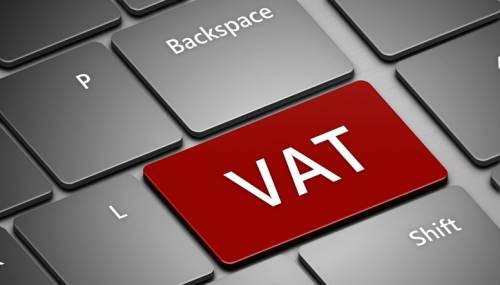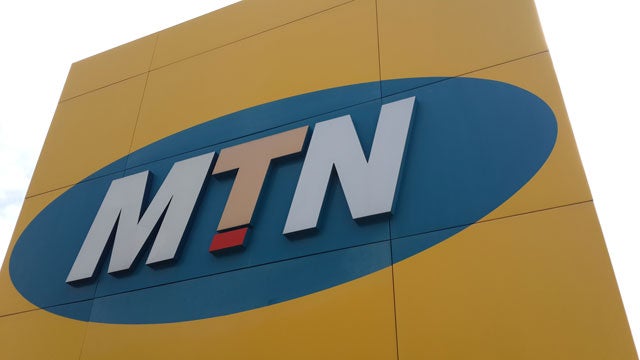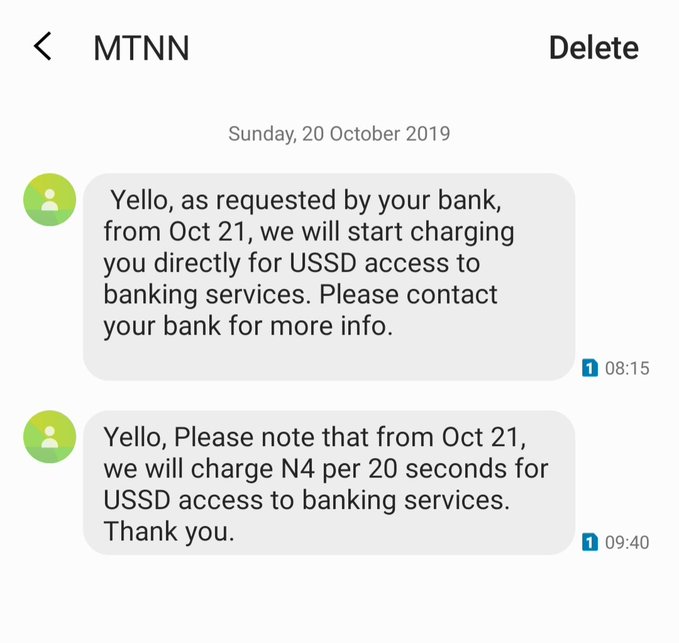ENTREPRENEURSHIP: 10 Reasons you should never apply for a job
A lot of people often have the notion that looking for and applying to start a job and getting employed and paid is the next best thing after graduating from higher institution. In fact young graduates have the illusion about the often talked about white collar job which will apparently give you all the “happiness you require” after getting your higher education certificate.
However this article written by Steve Pavlina proves otherwise. He says a job only keeps you in bondage and the income you receive therein are only for dummies.
I read this article over 10 years ago and I have successfully set up two thriving organizations thereafter. For this reason, I want to share with my readers so they too can benefit from it and never allow themselves become slaves to any job master anywhere. I am convinced you will never remain the same after this. Happy reading!
It’s funny that when people reach a certain age, such as after graduating college, they assume it’s time to go out and get a job. But like many things the masses do, just because everyone does it doesn’t mean it’s a good idea. In fact, if you’re reasonably intelligent, getting a job is one of the worst things you can do to support yourself. There are far better ways to make a living than selling yourself into indentured servitude.
Here are some reasons you should do everything in your power to avoid getting a job:
1. Income for dummies
Getting a job and trading your time for money may seem like a good idea. There’s only one problem with it. It’s stupid! It’s the stupidest way you can possibly generate income! This is truly income for dummies.
Why is getting a job so dumb? Because you only get paid when you’re working. Don’t you see a problem with that, or have you been so thoroughly brainwashed into thinking it’s reasonable and intelligent to only earn income when you’re working? Have you never considered that it might be better to be paid even when you’re not working? Who taught you that you could only earn income while working? Some other brainwashed employee perhaps?
Don’t you think your life would be much easier if you got paid while you were eating, sleeping, and playing with the kids too? Why not get paid 24/7? Get paid whether you work or not. Don’t your plants grow even when you aren’t tending to them? Why not your bank account?
Who cares how many hours you work? Only a handful of people on this entire planet care how much time you spend at the office. Most of us won’t even notice whether you work 6 hours a week or 60. But if you have something of value to provide that matters to us, a number of us will be happy to pull out our wallets and pay you for it. We don’t care about your time — we only care enough to pay for the value we receive. Do you really care how long it took me to write this article? Would you pay me twice as much if it took me 6 hours vs. only 3?
Non-dummies often start out on the traditional income for dummies path. So don’t feel bad if you’re just now realizing you’ve been suckered. Non-dummies eventually realize that trading time for money is indeed extremely dumb and that there must be a better way. And of course there is a better way. The key is to de-couple your value from your time.
Smart people build systems that generate income 24/7, especially passive income. This can include starting a business, building a web site, becoming an investor, or generating royalty income from creative work. The system delivers the ongoing value to people and generates income from it, and once it’s in motion, it runs continuously whether you tend to it or not. From that moment on, the bulk of your time can be invested in increasing your income (by refining your system or spawning new ones) instead of merely maintaining your income.
This web site is an example of such a system. At the time of this writing, it generates about $9000 a month in income for me (update: $40,000 a month as of 10/31/06), and it isn’t my only income stream either. I write each article just once (fixed time investment), and people can extract value from them year after year. The web server delivers the value, and other systems (most of which I didn’t even build and don’t even understand) collect income and deposit it automatically into my bank account. It’s not perfectly passive, but I love writing and would do it for free anyway. But of course it cost me a lot of money to launch this business, right? Um, yeah, $9 is an awful lot these days (to register the domain name). Everything after that was profit.
Sure it takes some upfront time and effort to design and implement your own income-generating systems. But you don’t have to reinvent the wheel — feel free to use existing systems like ad networks and affiliate programs. Once you get going, you won’t have to work so many hours to support yourself. Wouldn’t it be nice to be out having dinner with your spouse, knowing that while you’re eating, you’re earning money? If you want to keep working long hours because you enjoy it, go right ahead. If you want to sit around doing nothing, feel free. As long as your system continues delivering value to others, you’ll keep getting paid whether you’re working or not.
Your local bookstore is filled with books containing workable systems others have already designed, tested, and debugged. Nobody is born knowing how to start a business or generate investment income, but you can easily learn it. How long it takes you to figure it out is irrelevant because the time is going to pass anyway. You might as well emerge at some future point as the owner of income-generating systems as opposed to a lifelong wage slave. This isn’t all or nothing. If your system only generates a few hundred dollars a month, that’s a significant step in the right direction.
2. Limited experience
You might think it’s important to get a job to gain experience. But that’s like saying you should play golf to get experience playing golf. You gain experience from living, regardless of whether you have a job or not. A job only gives you experience at that job, but you gain “experience” doing just about anything, so that’s no real benefit at all. Sit around doing nothing for a couple years, and you can call yourself an experienced meditator, philosopher, or politician.
The problem with getting experience from a job is that you usually just repeat the same limited experience over and over. You learn a lot in the beginning and then stagnate. This forces you to miss other experiences that would be much more valuable. And if your limited skill set ever becomes obsolete, then your experience won’t be worth squat. In fact, ask yourself what the experience you’re gaining right now will be worth in 20-30 years. Will your job even exist then?
Consider this. Which experience would you rather gain? The knowledge of how to do a specific job really well — one that you can only monetize by trading your time for money — or the knowledge of how to enjoy financial abundance for the rest of your life without ever needing a job again? Now I don’t know about you, but I’d rather have the latter experience. That seems a lot more useful in the real world, wouldn’t you say?
3. Lifelong domestication
Getting a job is like enrolling in a human domestication program. You learn how to be a good pet.
Look around you. Really look. What do you see? Are these the surroundings of a free human being? Or are you living in a cage for unconscious animals? Have you fallen in love with the color beige?
How’s your obedience training coming along? Does your master reward your good behavior? Do you get disciplined if you fail to obey your master’s commands?
Is there any spark of free will left inside you? Or has your conditioning made you a pet for life?
Humans are not meant to be raised in cages. You poor thing…
4. Too many mouths to feed
Employee income is the most heavily taxed there is. In the USA you can expect that about half your salary will go to taxes. The tax system is designed to disguise how much you’re really giving up because some of those taxes are paid by your employer, and some are deducted from your paycheck. But you can bet that from your employer’s perspective, all of those taxes are considered part of your pay, as well as any other compensation you receive such as benefits. Even the rent for the office space you consume is considered, so you must generate that much more value to cover it. You might feel supported by your corporate environment, but keep in mind that you’re the one paying for it.
Another chunk of your income goes to owners and investors. That’s a lot of mouths to feed.
It isn’t hard to understand why employees pay the most in taxes relative to their income. After all, who has more control over the tax system? Business owners and investors or employees?
You only get paid a fraction of the real value you generate. Your real salary may be more than triple what you’re paid, but most of that money you’ll never see. It goes straight into other people’s pockets.
What a generous person you are!
5. Way too risky
Many employees believe getting a job is the safest and most secure way to support themselves.
Morons.
Social conditioning is amazing. It’s so good it can even make people believe the exact opposite of the truth.
Does putting yourself in a position where someone else can turn off all your income just by saying two words (“You’re fired”) sound like a safe and secure situation to you? Does having only one income stream honestly sound more secure than having 10?
The idea that a job is the most secure way to generate income is just silly. You can’t have security if you don’t have control, and employees have the least control of anyone. If you’re an employee, then your real job title should be professional gambler.
6. Having an evil bovine master
When you run into an idiot in the entrepreneurial world, you can turn around and head the other way. When you run into an idiot in the corporate world, you have to turn around and say, “Sorry, boss.”
Did you know that the word boss comes from the Dutch word baas, which historically means master? Another meaning of the word boss is “a cow or bovine.” And in many video games, the boss is the evil dude that you have to kill at the end of a level.
So if your boss is really your evil bovine master, then what does that make you? Nothing but a turd in the herd.
Who’s your daddy?
7. Begging for money
When you want to increase your income, do you have to sit up and beg your master for more money? Does it feel good to be thrown some extra Scooby Snacks now and then?
Or are you free to decide how much you get paid without needing anyone’s permission but your own?
If you have a business and one customer says “no” to you, you simply say “next.”
8. An inbred social life
Many people treat their jobs as their primary social outlet. They hang out with the same people working in the same field. Such incestuous relations are social dead ends. An exciting day includes deep conversations about the company’s switch from Sparkletts to Arrowhead, the delay of Microsoft’s latest operating system, and the unexpected delivery of more Bic pens. Consider what it would be like to go outside and talk to strangers. Ooooh… scary! Better stay inside where it’s safe.
If one of your co-slaves gets sold to another master, do you lose a friend? If you work in a male-dominated field, does that mean you never get to talk to women above the rank of receptionist? Why not decide for yourself whom to socialize with instead of letting your master decide for you? Believe it or not, there are locations on this planet where free people congregate. Just be wary of those jobless folk — they’re a crazy bunch!
9. Loss of freedom
It takes a lot of effort to tame a human being into an employee. The first thing you have to do is break the human’s independent will. A good way to do this is to give them a weighty policy manual filled with nonsensical rules and regulations. This leads the new employee to become more obedient, fearing that s/he could be disciplined at any minute for something incomprehensible. Thus, the employee will likely conclude it’s safest to simply obey the master’s commands without question. Stir in some office politics for good measure, and we’ve got a freshly minted mind slave.
As part of their obedience training, employees must be taught how to dress, talk, move, and so on. We can’t very well have employees thinking for themselves, now can we? That would ruin everything.
God forbid you should put a plant on your desk when it’s against the company policy. Oh no, it’s the end of the world! Cindy has a plant on her desk! Summon the enforcers! Send Cindy back for another round of sterility training!
Free human beings think such rules and regulations are silly of course. The only policy they need is: “Be smart. Be nice. Do what you love. Have fun.”
10. Becoming a coward
Have you noticed that employed people have an almost endless capacity to whine about problems at their companies? But they don’t really want solutions — they just want to vent and make excuses why it’s all someone else’s fault. It’s as if getting a job somehow drains all the free will out of people and turns them into spineless cowards. If you can’t call your boss a jerk now and then without fear of getting fired, you’re no longer free. You’ve become your master’s property.
When you work around cowards all day long, don’t you think it’s going to rub off on you? Of course it will. It’s only a matter of time before you sacrifice the noblest parts of your humanity on the altar of fear: first courage… then honesty… then honor and integrity… and finally your independent will. You sold your humanity for nothing but an illusion. And now your greatest fear is discovering the truth of what you’ve become.
I don’t care how badly you’ve been beaten down. It is never too late to regain your courage. Never!
Still want a job?
If you’re currently a well-conditioned, well-behaved employee, your most likely reaction to the above will be defensiveness. It’s all part of the conditioning. But consider that if the above didn’t have a grain of truth to it, you wouldn’t have an emotional reaction at all. This is only a reminder of what you already know. You can deny your cage all you want, but the cage is still there. Perhaps this all happened so gradually that you never noticed it until now… like a lobster enjoying a nice warm bath.
If any of this makes you mad, that’s a step in the right direction. Anger is a higher level of consciousness than apathy, so it’s a lot better than being numb all the time. Any emotion — even confusion — is better than apathy. If you work through your feelings instead of repressing them, you’ll soon emerge on the doorstep of courage. And when that happens, you’ll have the will to actually do something about your situation and start living like the powerful human being you were meant to be instead of the domesticated pet you’ve been trained to be.
Happily jobless
What’s the alternative to getting a job? The alternative is to remain happily jobless for life and to generate income through other means. Realize that you earn income by providing value — not time — so find a way to provide your best value to others, and charge a fair price for it. One of the simplest and most accessible ways is to start your own business. Whatever work you’d otherwise do via employment, find a way to provide that same value directly to those who will benefit most from it. It takes a bit more time to get going, but your freedom is easily worth the initial investment of time and energy. Then you can buy your own Scooby Snacks for a change.
And of course everything you learn along the way, you can share with others to generate even more value. So even your mistakes can be monetized.
Call 0803 239 3958 for free financial consulting advice for your businesses.
Send your accounting articles to blog@skytrendconsulting.com.
READ ALSO!
Scammers hack UBA server, cart away N752m
Businesses With Less Than N25m Turnover Are Now VAT Exempt
Scammers hack UBA server, cart away N752m
How to get quick loans from Gtbank, Zenith, UBA, Access Bank without collateral
Access Bank non-collateralized emergency loan hits N1bn daily: How you can benefit…
VAT threshold of N25m: All you need to know
PAYE: How to calculate personal income tax
Skytrend Consulting: Financial services and accounting solutions company
VAT on online purchases: 8 Critical things you must know
READ ALSO! TraderMoni: Poverty Alleviation Or Political Leverage?









